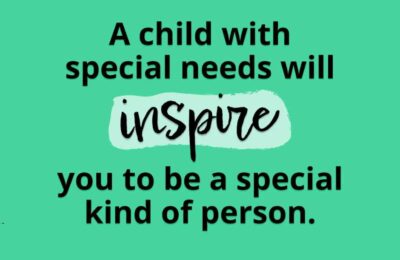Why and how to become an SNA (Special Needs Assistant)
The role of a Special Needs Assistant is crucial in creating an inclusive and supportive learning environment for students with special educational needs. SNAs often work closely with special education teachers, classroom teachers, and members of the multi disciplinary teams to provide a holistic approach to supporting students with additional needs in their educational journey.
An SNA will assist students within the classroom environment, helping them participate in class activities, understand instructions, and complete assignments. They will also aid in facilitating communication for students who have speech or language difficulties, using tools or techniques as outlined in their individual educational plans (IEP). Becoming an SNA can also give the children a sense of belonging while also providing them with emotional support and encouragement to help them build confidence and social skills.
“I’m afraid to go back to education”
It’s completely normal to feel apprehensive about returning to education, especially if there are specific concerns or anxieties associated with the decision.
Fear of the unknown:
Remember this, learning is a process, and everyone faces challenges. At Forus Training, we will help you set realistic goals which can be broken into smaller tasks. You will have a trainer that will be available to answer any questions that may arise. Remember that setbacks are a natural part of the learning journey.
I’m too old to retrain:
Understand that it’s never too late to pursue education. Many people return to education at various stages of life. Focus on the benefits and personal growth rather than comparing yourself to others. At Forus Training, there is technical support available if you have technology anxiety, so you don’t need to fear adapting to the digital learning environment.
Changing careers is a big step, but becoming an SNA can make a difference in the lives of so many children that need the one on one help you can give them. A good SNA requires skills such as empathy, patience, and being adaptable to respond to different needs and environments while also adjusting support strategies where necessary. SNA’s need to have good communication and interpersonal skills as well as working as part of a team. If you have these qualities, you can make a difference.
Learning to suit you
With Forus Training, this is possible – we have tailored courses to suit you! Whether it’s in class where you have the support of learning with other students, or maybe you prefer to learn at your own pace (our self-paced courses allow you to study in your own time). Another option is blended learning which offers a mix of group-based tutorial sessions and completing content in your own time. So you see, there is a learning route for all.
All the courses have the benefit of a trainer who is available throughout your learning journey making sure you never feel alone. You will also have a learner pack with all the information you need for your course.
It’s never too late to go back to education. There is nothing better than the feeling of achievement when finishing a course, receiving your Certificate, and being able to say “I did this!!!”
Get more information about our ELC courses by emailing hello@forustraining or contacting our friendly staff on 044 934 9400.























